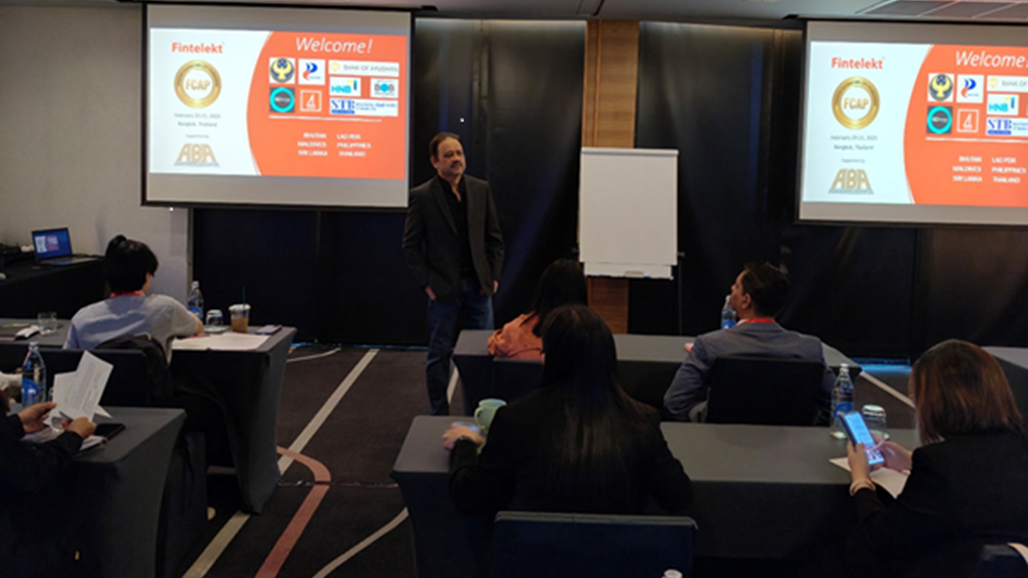The Asian Bankers Association (ABA) and Fintelekt Advisory Services, an ABA Knowledge Partner, jointly organized the Fintelekt Certified AML/CFT Professional (FCAP)on 20-21 February 2025 in Bangkok, Thailand.
(FCAP) is a two-day intensive course designed as a comprehensive and practical masterclass for aspiring and practicing AML/CFT professionals to learn and stay updated with the latest tools, techniques and developments in anti-money laundering (AML) and combating the financing of terrorism (CFT).
Held at Hotel Aloft, the latest course offering was attended by professionals from institutions across Asia from private as well as public sectors joined the programme. The ABA Secretariat was represented by Deputy Secretary Mig Moreno.
(1) Day One
Shirish Pathak, Managing Director, Fintelekt Advisory Services Pvt Ltd (Fintelekt) set the context, explaining that FCAP was introduced in response to a pressing regional need for an advanced training and certification programme that can help demonstrate a commitment and contribute towards building a stronger AML/CFT regime in the institution, the country as well as the global financial system.
Morning Training Session
Vikas Tandon, Trainer at Fintelekt, started the day’s discussions and drew upon his practical experiences to start with fundamental aspects of AML and CFT, i.e., a strategic understanding of AML/CFT risks and the application of a risk-based approach. He highlighted the need for a strong AML governance framework, balancing AML compliance and business priorities in accordance with the defined risk appetite of the organization and the consequences of non-compliance. He also delved into the various elements involved in an enterprise-wide risk assessment (EWRA).
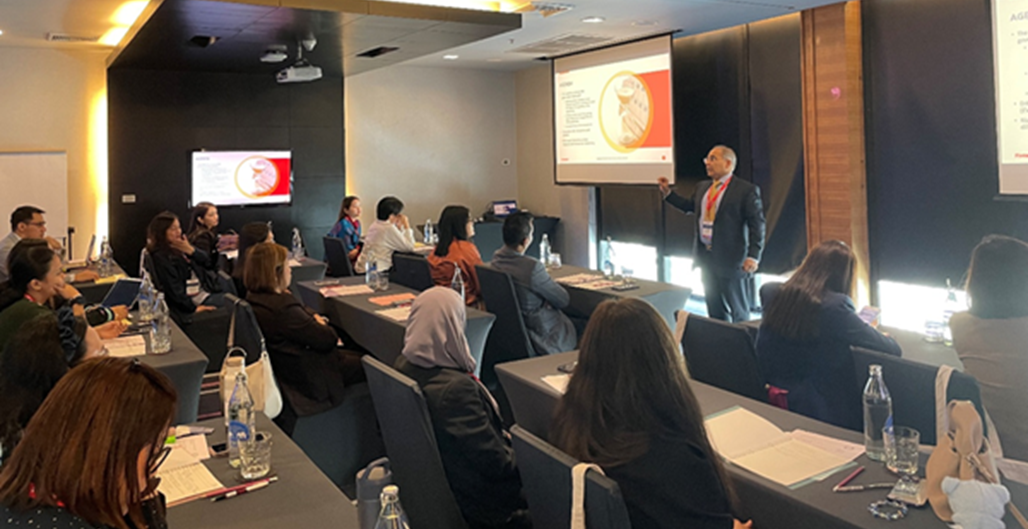
The following session was on correspondent banking risks, including evaluating and monitoring counterparty risks and MVTS considerations within correspondent banking. Participants from sectors other than banks were able to understand the risks involved for banks and therefore appreciate better the due diligence requirements in turn placed by banks on their customers to safeguard their correspondent banking relationships.
Afternoon Training Session
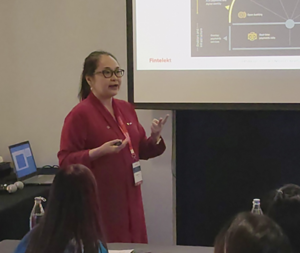 The post-lunch session of day one was taught by Julia Chin, Trainer at Fintelekt, on evolving risks and their impact on the AML/CFT function.
The post-lunch session of day one was taught by Julia Chin, Trainer at Fintelekt, on evolving risks and their impact on the AML/CFT function.
Julia took the participants in detail through the risks from digital payments, fintechs and various types of payment intermediaries, use of third parties in delivery channels and risks from virtual currency and decentralized finance. The session also included a discussion on the changing regulatory expectations around technology usage and monitoring.
Julia’s session concluded with a hypothetical case of a virtual asset service provider, which the group analysed. They were able to draw practical conclusions and lessons from the case from different perspectives – that of a regulator, a bank, and the crypto exchange.
Group Work
For the group activity on day One, the participants were divided into four groups and were asked to analyse ML/TF risks and design mitigation strategies for certain financial products as a group. Vikas facilitated the discussions.
A group-leader from each group collated and presented the findings of the analysis conducted by their group, which was then summarised and concluded by Vikas and Julia.
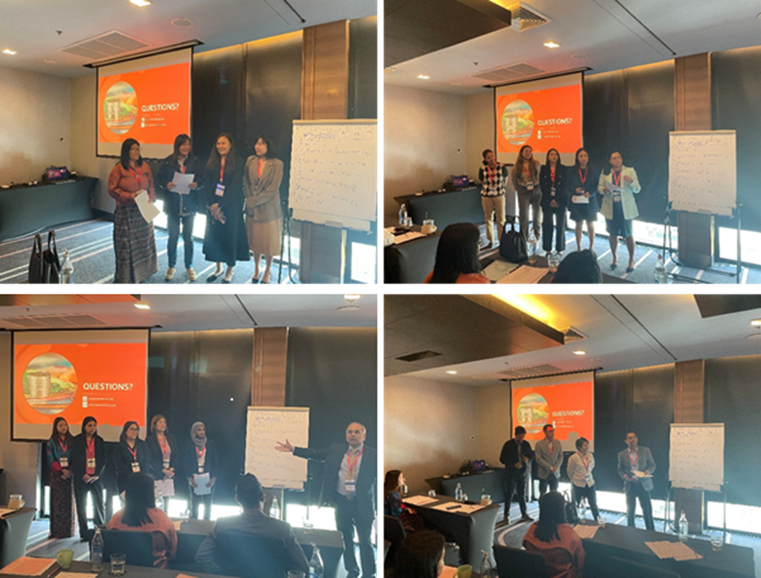
(2) Day Two
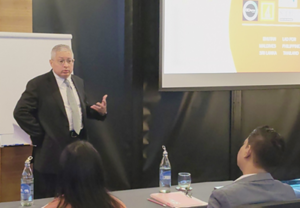 The second day started with welcome remarks from Mr. Mig Moreno who stressed upon the importance of assiduous learning and skill development in the continuously evolving financial crime environment. He also highlighted the role of the ABA in bringing together bankers and other members of the financial services community to collaborate and cooperate on issues of strategic importance.
The second day started with welcome remarks from Mr. Mig Moreno who stressed upon the importance of assiduous learning and skill development in the continuously evolving financial crime environment. He also highlighted the role of the ABA in bringing together bankers and other members of the financial services community to collaborate and cooperate on issues of strategic importance.
He spoke about current changes coming from the US such as the demotion of ESG priorities, crypto assets entering treasury operations and their impact on valuation and value-at-risk, and new trade disputes driven by a new foreign policy that will modify sanctions regime on certain jurisdictions, thus impacting cash flows in banks and consequently emphasizing the importance of monitoring systems.
The corollary of the current situation is that the new US administration brought a series of significant policy changes that include banking regulations; and since the overwhelming majority of international trade uses US dollars, many of the treasury operations among Asian banks are effectively under US Treasury’s jurisdiction. Thus, it is incumbent on Asian banks and financial institutions to remain alert and protect themselves as the horizon 6 months to 1 year from now is unknown.
Morning Training Session
Vikas Tandon continued the training programme and steered the participants through changing priorities on screening and due diligence, including key sanctions risks and screening, the risks from politically exposed persons (PEP) and adverse media monitoring.
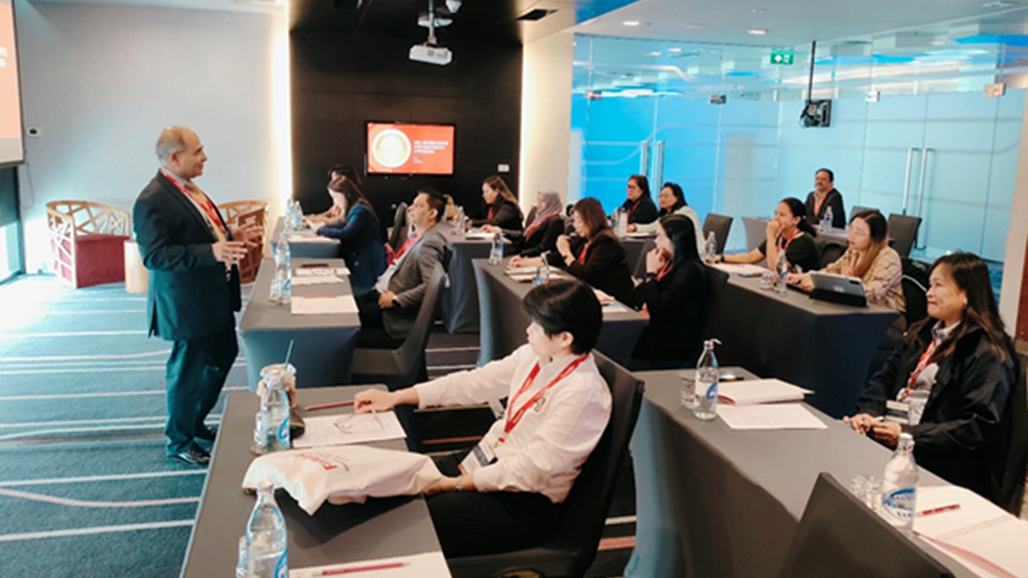
The session also discussed ultimate beneficial ownership (UBO) and the risks associated with legal persons, corporate vehicles and arrangements and methods for establishing beneficial ownership and source of funds.
The next session on trade-based money laundering included an understanding of risks involved in financing trade, and due diligence measures to detect suspicious transactions. Vikas went on to cover the terrorism financing process, cross-border risks, proliferation financing, the difficulties faced in identifying proliferation financing and proliferation financing risk assessments.
The last and most important session on transaction monitoring focused on the methods to have an understanding of the normal and reasonable activity of the customer, so as to be able to identify transactions that fall outside the regular pattern of activity.
Group Work
On day Two, the participants were given cases around transaction monitoring. Their task was to identify red flag indicators for the cases within their group.
A group-leader from each group collated and presented the findings of the analysis conducted by their group, which was them summarised and concluded by Vikas.
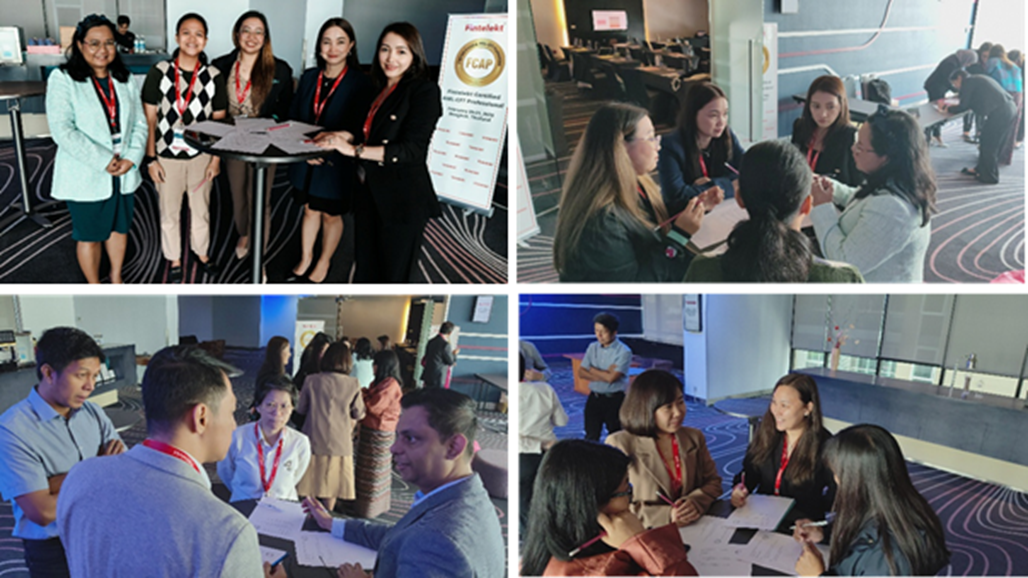
Afternoon Training Session
Dr. Naomi Doak, Regional Coordinator, Counter Wildlife Trafficking, representing the Bangkok office of the Wildlife Conservation Society was a Guest Speaker at the programme on day Two. She spoke to participants about regional trends in wildlife trafficking and environmental crimes including the growing nexus with organised criminal activity and emerging money laundering typologies in the region.
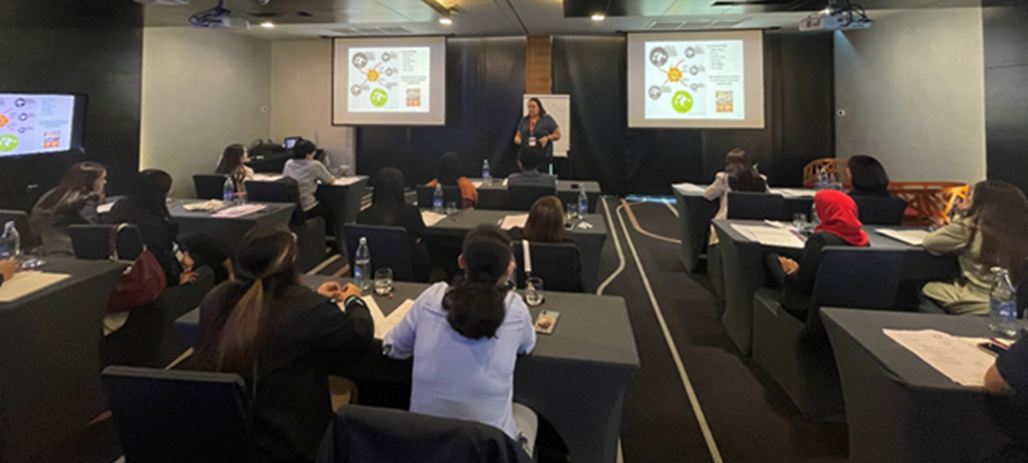
(3) Participants
The FCAP programme in Bangkok was well attended with 18 participants from banking, fintech, regulatory and supervisory institution across 6 countries in Asia, viz. Bhutan, Lao, Maldives, Philippines, Sri Lanka and Thailand.
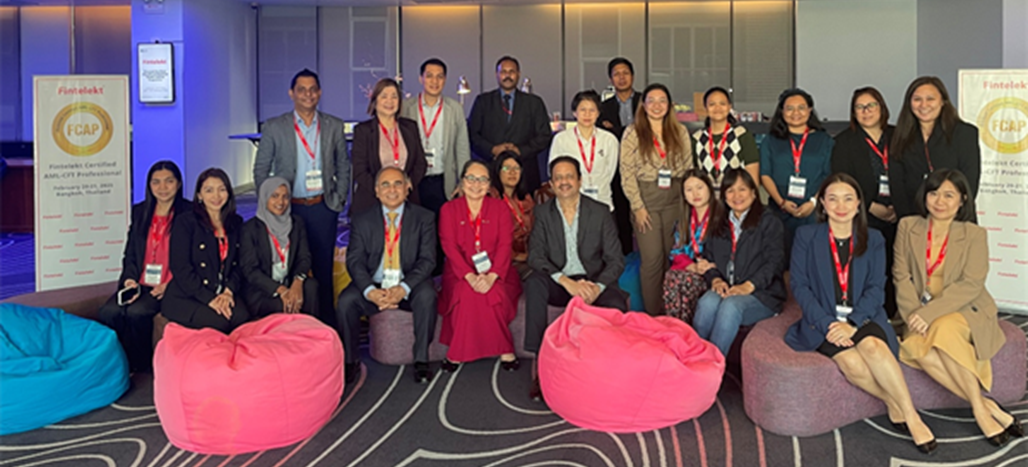
List of Participating Institutions:
- Bangko Sentral ng Pilipinas, Philippines
- Bank of Ayudhya PCL, Thailand
- Bank of Bhutan Ltd., Bhutan
- Bank of Maldives, Maldives
- Gotyme Bank Corporation, Philippines
- Hatton National Bank PLC, Sri Lanka
- Philippine Amusement and Gaming Corporation (PAGCOR), Philippines
- ST Bank Ltd, Lao

